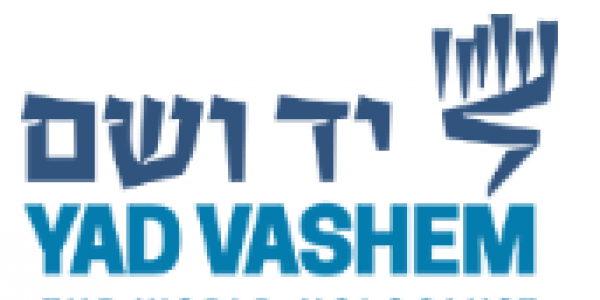Yad Vashem apologizes
Distortions favoring Russia at Holocaust forum
03/02/2020 | Na stronie od 04/02/2020

From: Toi Staff - The Times of Israel
Museum tells newspaper it allowed an unbalanced representation of events during World War II, clarifies that videos shown at ceremony last month do not represent its own position
Yad Vashem apologized Monday for “inaccuracies” and “partial” facts presented at last month’s World Holocaust Forum in Jerusalem, after being criticized for overly emphasizing Russia’s role in ending the war and avoiding information Moscow finds unpalatable.
Videos presented at the ceremony that was attended by dozens of world leaders, among them Russian President Vladimir Putin, focused almost exclusively on the Soviet Union’s role in defeating the Nazis, while downplaying the role of America, Britain, and other countries.
They also failed to mention Joseph Stalin’s deal with Adolf Hitler in the Molotov–Ribbentrop Pact that preceded the war, Russia’s occupation of parts of Poland, and other facts uncomfortable to Moscow.
The events of the Forum, which was organized to mark the 75th anniversary of the Red Army’s liberation of the Auschwitz-Birkenau camp, have been widely criticized as overly fawning toward Putin.
“We apologize for the very unfortunate incident that happened,” Yad Vashem said in a letter sent to Haaretz.
The events of the Forum, which was organized to mark the 75th anniversary of the Red Army’s liberation of the Auschwitz-Birkenau camp, have been widely criticized as overly fawning toward Putin.
“We apologize for the very unfortunate incident that happened,” Yad Vashem said in a letter sent to Haaretz.
“Sadly, videos at the event, and particularly the one intended to summarize key points of World War II and the Holocaust, included inaccuracies and a partial portrayal of historical facts that created an unbalanced impression,” the Holocaust memorial museum told the paper. “The videos…do not portray the [full] complicated picture.”
“These videos do not represent Yad Vashem’s research position on these issues,” the museum said and noted that it has a commitment “to the historical truth as far as possible, and to carrying out research that contradicts the attempts at blurring and distorting political discourse in various countries.”
Yad Vashem did not say if it was responsible for the content of the ceremony, the report said. It also did not address the issue of Putin being invited to speak, but no similar invitation being extended to Polish President Andrzej Duda, who declined to attend the Jerusalem event because he was denied a speaking slot.
Putin, in his speech at the forum, implied that Poland was complicit in the Nazi genocide and claimed that 40 percent of the Jews who died in the Holocaust were citizens of the Soviet Union. Historians called the latter claim absurd.
Putin’s invitation to speak, and Duda’s lack of one, was seen by some as a sign that Israel was allowing itself to be dragged into the ongoing conflict in Eastern and Central Europe over the legacy of the war.
In recent months, Putin has engaged in a war over World War II complicity with Poland. Putin has accused Poland of cooperating with Germany in 1938, while his Polish counterpart Duda has charged Russia with downplaying its own role in invading the Eastern European nation in cooperation with the Nazis the following year.
The World Holocaust Forum event also came in the midst of delicate negotiations between Israel and Russia to secure the release of a US-Israeli backpacker who was jailed in Russia for 7.5 years on a drug offense.
During his visit, Putin met with the mother of Naama Issachar and then, last week, pardoned the prisoner, who returned to Israel on Thursday.
The Forum, in its fifth year, was started by Russian philanthropist Moshe Kantor, who is seen as close to Putin. Israel in recent years has carefully calibrated its ties with the Kremlin, which has had an outsized role in the region, due to Russia’s work to prop up Syrian dictator Bashar Assad.
Related: Among dozens of world leaders in Jerusalem, Putin proves the dominant presence
The January 23 event was preceded by the unveiling of a memorial in Jerusalem to the victims of the Siege of Leningrad, Putin’s hometown. The memorial was funded by a group of Russian businessmen and the event was attended by Putin and Prime Minister Benjamin Netanyahu, as well as other Israeli leaders.
Kantor dismissed claims last month that the ceremony had become politicized, saying its only goal was to unite world leaders against anti-Semitism.
“It’s not a political gathering. Our main goal is to use the platform of Holocaust commemoration to raise the issue about the crisis of anti-Semitism. And we have done that,” Kantor told reporters at a press conference.
Yad Vashem had defended the speaker list at the event, saying in a statement beforehand that it was “especially appropriate that the leaders addressing this event represent the four main powers of the Allied forces, which liberated Europe and the world from the murderous tyranny of Nazi Germany.”
A week after the Jerusalem event, President Reuven Rivlin attended another ceremony, this time at the site of Auschwitz-Birkenau camp in Poland. At that ceremony, Duda told Rilvin that the Holocaust Forum had been colored by the personal friendship between event president Moshe Kantor and Putin, giving it a pro-Russian taint, Haaretz reported.